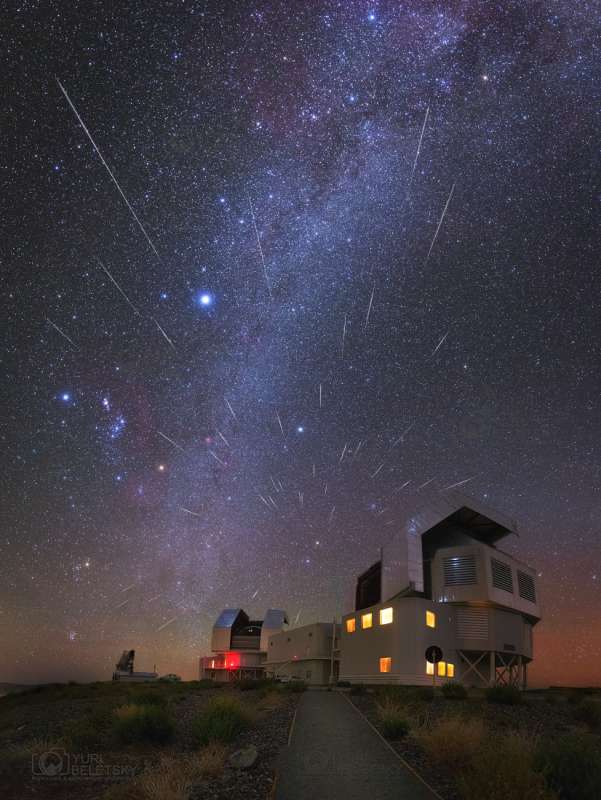Geminids of the South

Explanation:
Earth's annual Geminid
meteor shower did not disappoint, peaking
before dawn on December 14 as our fair planet plowed
through dust from
active asteroid
3200 Phaethon.
Captured in this
southern hemisphere
nightscape the meteors stream away from the shower's
radiant in Gemini.
To create the image, many individual frames recording
meteor streaks were taken over period of 5 hours.
In the final composite they were selected and registered against
the starry sky above the twin 6.5 meter Magellan telescopes of
Carnegie Las Campanas Observatory in Chile.
Rigel in
Orion, and Sirius shine brightly as the Milky Way stretches
toward the zenith.
Near Castor
and Pollux
the twin stars of Gemini, the meteor shower's radiant is low,
close to the horizon.
The radiant effect is due to perspective as the parallel meteor
tracks appear to converge in the distance.
Gemini's meteors enter
Earth's atmosphere traveling
at about 22 kilometers per second.
Authors & editors:
Robert Nemiroff
(MTU) &
Jerry Bonnell
(USRA)
NASA Web Site Statements, Warnings,
and Disclaimers
NASA Official: Jay Norris.
Specific
rights apply.
A service of:
LHEA at
NASA /
GSFC
& Michigan Tech. U.

